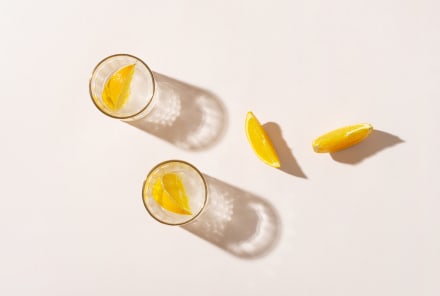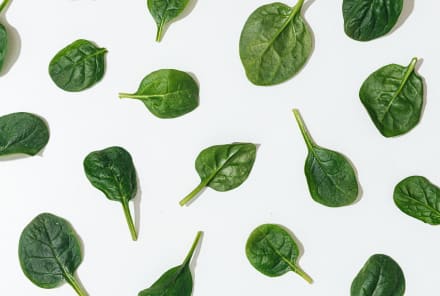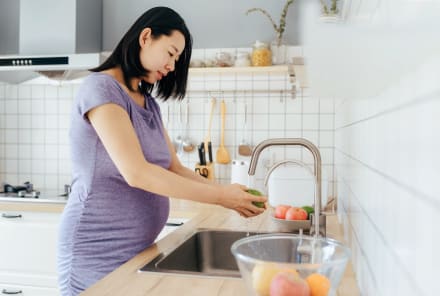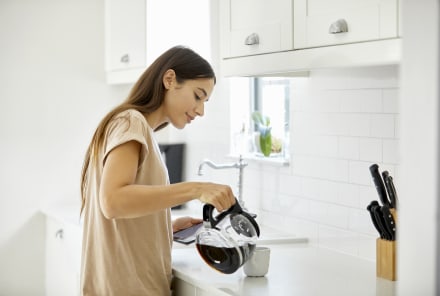Advertisement
How Turmeric Can Alleviate PMS & When To Take It For Maximum Results


A lot of women think premenstrual syndrome—aka PMS—is to be expected and endured. It can affect your mood, your body, your behaviors, and more, creating an altogether unpleasant experience every month of the year. While it's certainly common, PMS isn't actually normal, meaning there are ways to mitigate those symptoms.
According to spice expert Kanchan Koya, Ph.D., turmeric may be a great way to curb those premenstrual symptoms. She spoke with us about the health benefits of the spice, and when you can take it to optimize those benefits for PMS.
Koya explains a clinical trial1 in which researchers discovered a reduction in PMS symptoms after participants supplemented with curcumin, turmeric's active compound. The study looked at mood symptoms (restlessness, irritability, anxiety), physical symptoms (GI distress, headaches, abdominal pain), and behavioral characteristics (fatigue, appetite changes, lack of energy).
Results showed a significant decrease in symptoms after supplementation throughout three menstrual cycles, linking its potential to treat PMS.
For why this could be the case, Koya points to the anti-inflammatory effects of turmeric. In fact, many of the negative symptoms of PMS can be linked to inflammation, she says. A 2016 study found a link between the severity of a person's PMS and a specific inflammation biomarker, called high-sensitivity C-reactive protein.
When should you take turmeric in your cycle?
Koya recommends people with severe PMS consider supplementation in a similar style as the clinical trial: "twice daily (every 12 hours) for seven days prior to the commencement of menstruation and three days into menstruation." She also emphasizes the importance of combining this supplement with something that can boost the bioavailability of curcumin, like piperine, which you can get from black pepper.
Koya cites cooking as a way to get that turmeric in if necessary but says that supplementation is the best method when it comes to treating PMS. "You can definitely embrace turmeric in cooking, but it would be hard to reach that level of curcumin (200 mg daily) without supplementation," she says. "I recommend a whole turmeric-based supplement with curcumin but also the other bioactive curcuminoids."
Here are some simple tricks to add turmeric to your diet, plus a recipe for turmeric tea.
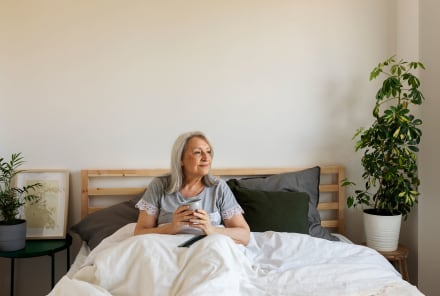
Do These Things To Reduce Your Risk Of Developing IBD By 61%
Gretchen Lidicker, M.S.

Do These Things To Reduce Your Risk Of Developing IBD By 61%
Gretchen Lidicker, M.S.

Do These Things To Reduce Your Risk Of Developing IBD By 61%
Gretchen Lidicker, M.S.

You Should Focus On Bone Health Earlier Than You Might Think — Here's Why
Dr. Vonda Wright, MD, MS

Do These Things To Reduce Your Risk Of Developing IBD By 61%
Gretchen Lidicker, M.S.

You Should Focus On Bone Health Earlier Than You Might Think — Here's Why
Dr. Vonda Wright, MD, MS
